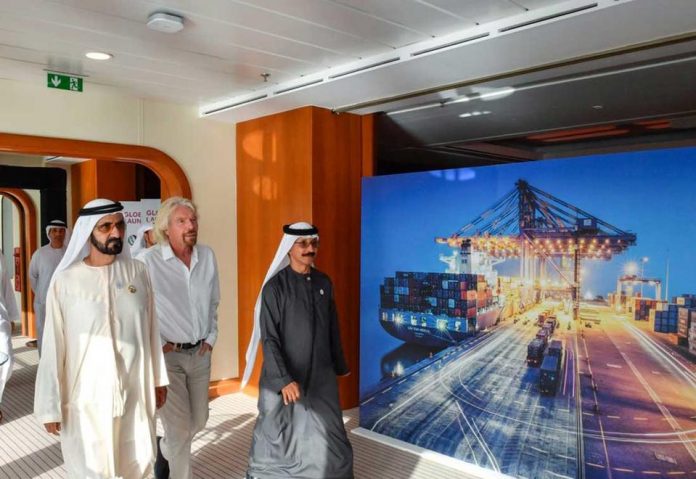Until a few years ago, a ground transportation system to move cargo and people at speeds exceeding 1,000kph seemed an idea fit for the pages of a science fiction novel.
Now, experts say the technology – known as hyperloop – is seemingly just around the corner and ready for deployment.
Last week, Virgin Hyperloop One and UAE ports operator DP World announced they are forming a new firm, DP World Cargospeed, that will use hyperloop’s vacuum tube-based technology to deliver goods at previously unprecedented speeds. According to DP World chairman Sultan Ahmed bin Sulayem, hyperloop means any cargo can be moved around the world in 14 hours “whether you are in China or on the North Pole”.
According to Virgin Hyperloop One’s chief technical officer, Josh Giegel, the implications for the movement of goods across the GCC are enormous. “It’s moving at the speed of flight for the cost of trucking,” he says. “You could put a central distribution system here [Dubai] and be able to distribute all your goods, within a couple of hours, all throughout the GCC. You’d be able to have same-day shipping.”
In parallel, the market for express and parcel freight is estimated to grow to $156bn by 2025 as e-commerce becomes increasingly global. Currently, air cargo accounts for less than one percent of world trade tonnage, yet 35 percent of the value is carried by air – suggesting the expanding market is limited by airline and airport capacity.
In theory, the hyperloop will go a long way to address these challenges. With top speeds estimated at 1,000kph or more, using a completely electric system with direct emissions, the system could be as fast as air travel – with far fewer drawbacks and delays. “Cargo can get there far cheaper because it’s less energy-intensive than a plane,” Giegel notes.
The future of passenger travel
According to Geiger, the benefits of using hyperloop to move cargo are magnified by the fact that doing so won’t require additional networks – cargo can be moved on the same pods and tubes as passengers, at night or at off-peak hours, for example.
For the logistics sector, the possibility of rapid delivery comes at a time of significant changes in the industry. According to data from Statista, e-commerce is set to grow to $4tr globally by 2020, prompting a dramatic shift in consumer and business behaviour, and the pressing need to be able to respond to each. More
By Bernd Debusmann Jr arabianbusiness.com

















